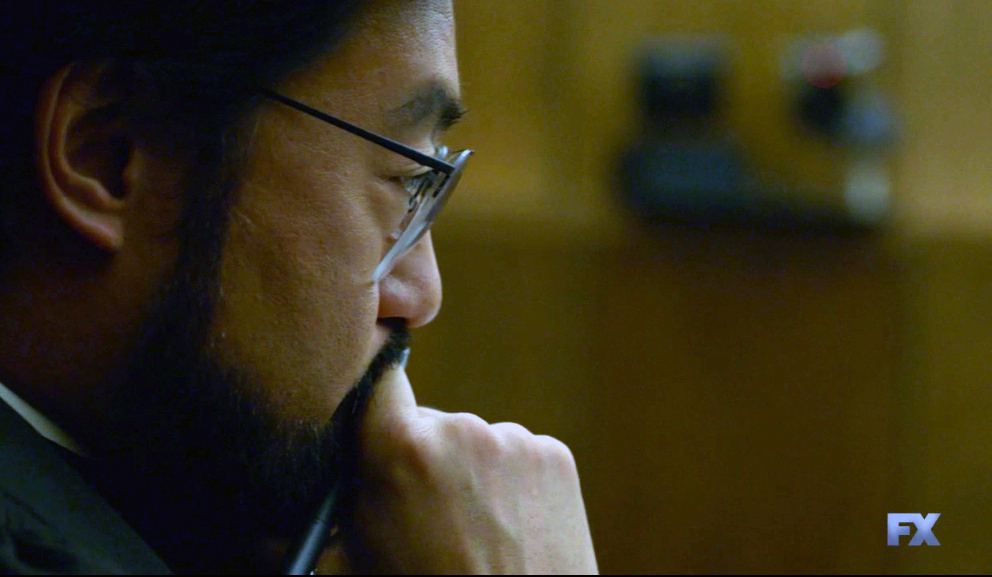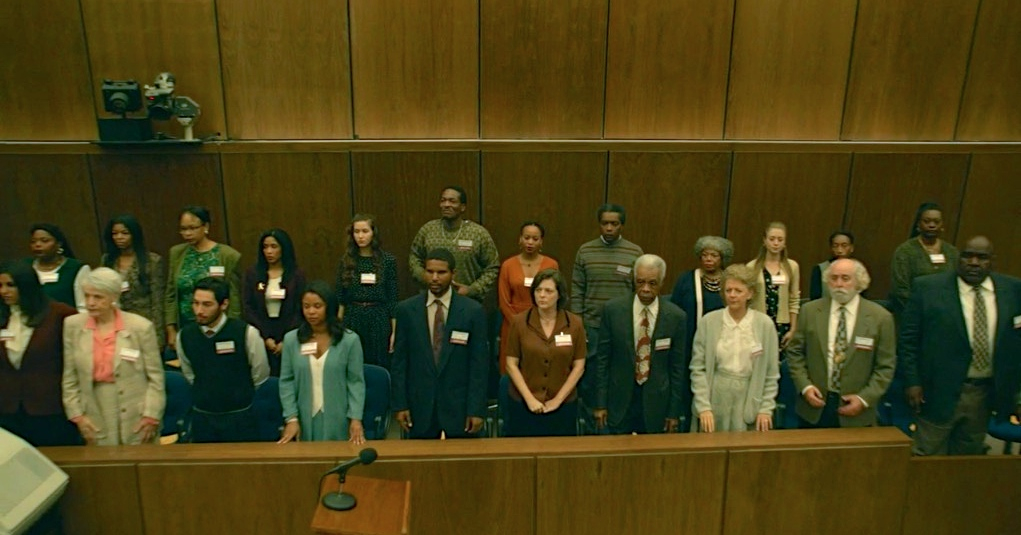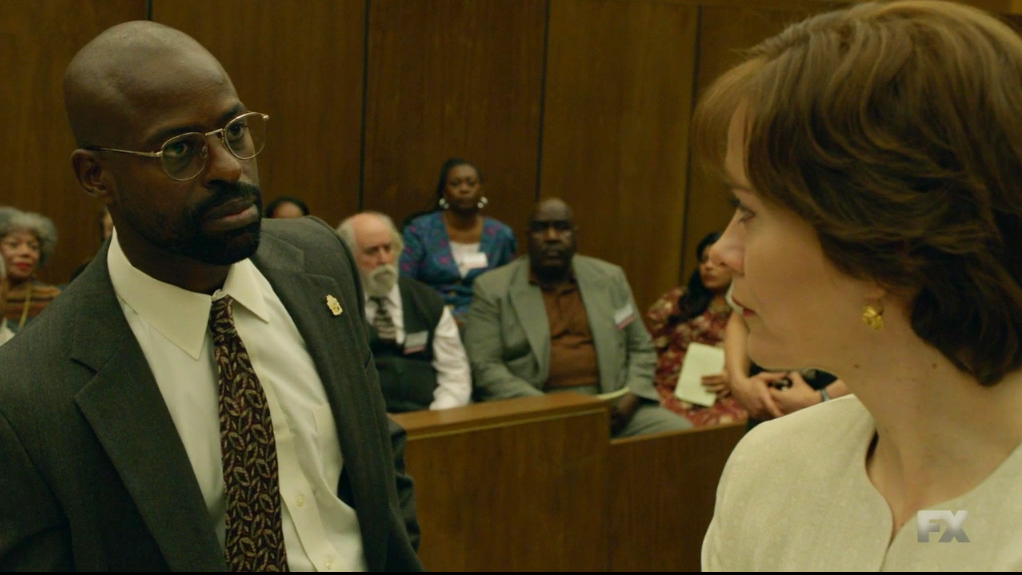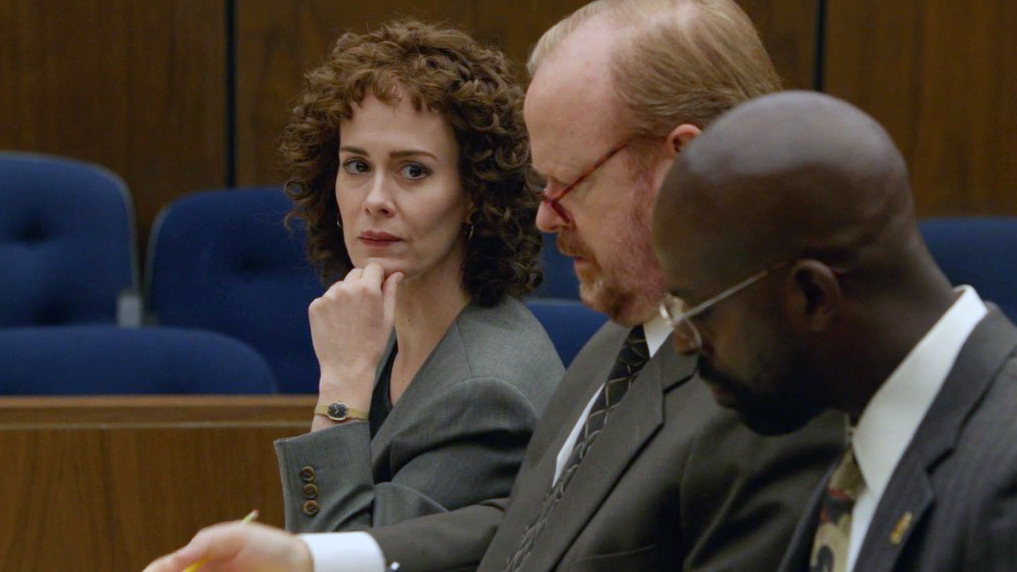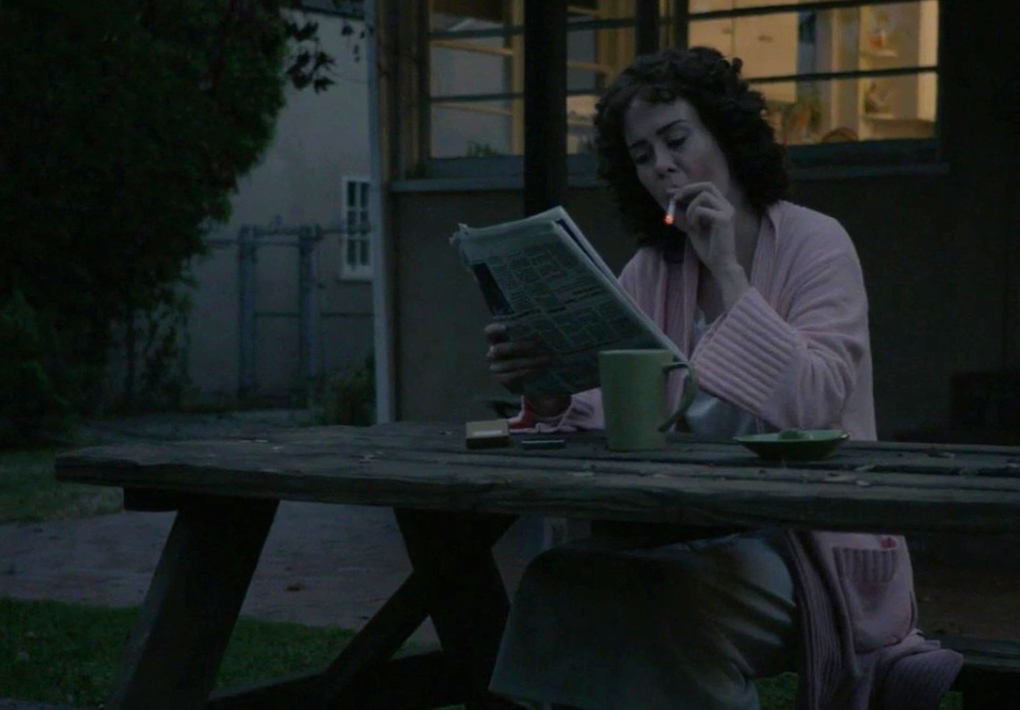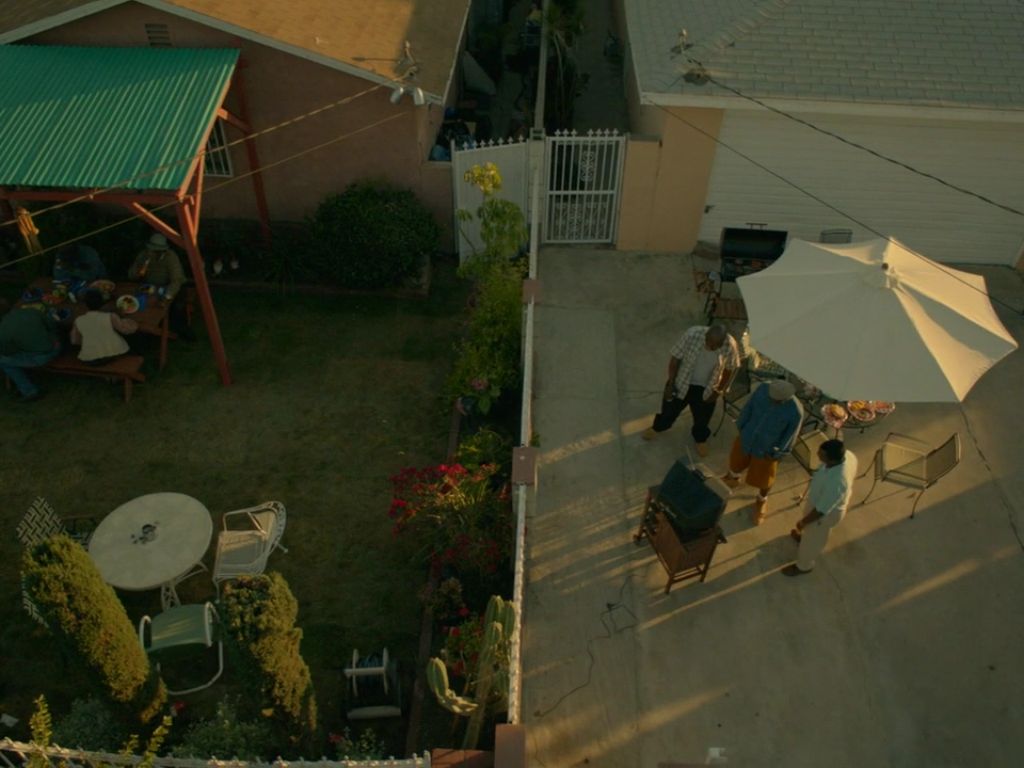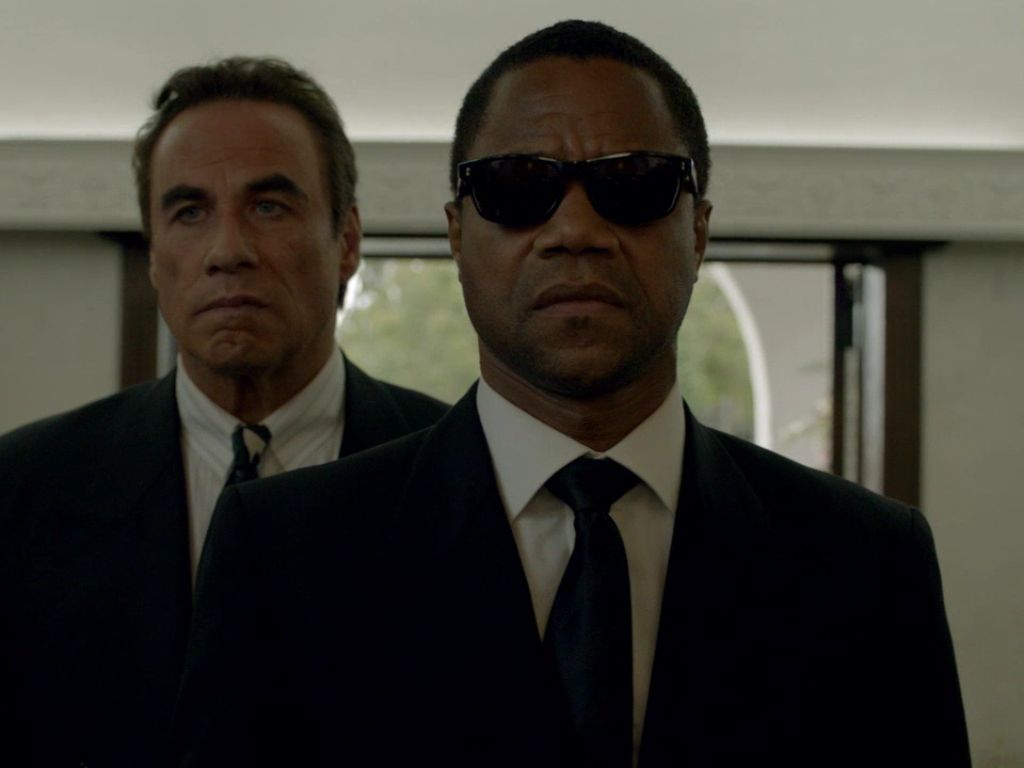
American Crime Story S1: The People v. OJ Simpson Ep 10 “The Verdict”
Posted by Katherine Recap | Hollywood, TV[For The People v. OJ Simpson “The Verdict” or any other recaps on Fetchland, assume the presence of possible spoilers.]
FX Summary:
The Verdict. Closing statements are given and the jury must decide on a verdict.
The finale of “American Crime Story: The People v. OJ Simpson” is the toughest version of a very special episode since Alex P. Keaton got addicted to speed. Unfortunately, in the case of The People v.OJ Simpson, it’s hard to watch because it’s real life. For instance, when Marcia Clark talks about how she’s driven to help abused women get justice because she was raped herself, we understand her as a person on a much deeper level than we did as a character up until now. When Darden breaks down during the press conference and stops talking to hug the Goldman family our hearts cry out to comfort him… and them. This all really happened and these characters are actually just people like us even if they seems larger than life under the circumstances. The one exception to this is, of course, OJ Simpson who seems oddly alien and unaware of how to act like a human. From the awkward party he insists on throwing to the stilted and surreal announcement he reads aloud at the party, Simpson’s off. The speech is an echo of the oddness of his alleged “suicide note” at the beginning of the series; strangely defensive and overwhelmingly inappropriate.
“The Verdict” finale episode begins as the trial is winding down. OJ gives a brief statement but does not testify. When he’s done seeking sympathy and claiming his innocence, the defense rests. Then we see closing arguments and Marcia goes first. She starts with Mark Fuhrman, pointing out that he may be a terrible person, yes, but he’s also a mere distraction next to a mountain of evidence that proves OJ’s guilt. She shows pictures and points out details for all of the evidence that the defense didn’t and couldn’t refute. It’s solid stuff, including the astonishing DNA evidence which clearly identifies OJ Simpson as the killer. Darden then speaks to the volatile relationship between Nicole and OJ leading up to this disastrous end – thus proving motive. His words are powerful and hit all the important points. It’s hard to imagine closing arguments for the prosecution more compelling than the clear rationale presented by Clark and Darden here.
Cochran then starts with an emotionally volatile argument and, parallel to Marcia, brings Mark Fuhrman into the story right from the start. Johnnie says that even back when OJ was being accused of domestic abuse it was Fuhrman who came to the door. He represents the entire LAPD and thus their verdict will impact the entire LAPD. Johnnie tells them they have a responsibility to remedy the wrongs of the police saying, “If you don’t stop this coverup, who will?” and then about the gloves adds the memorable line, “If it doesn’t fit, you must acquit,” as the final statement for his comparatively short closing statement.
Afterward Marcia leaves to take her kids away to Santa Barbara. The Dream Team all talk about taking their own vacations too. Then they leave Shapiro alone on a bench in the courtroom lobby, their disdain for him lingers behind like a smelly fart in his face. It’s clear everyone thinks the jury will be deliberating for a long time and that makes sense given that they’ve been listening to evidence for eight months. But when we see the jury begin their deliberations it seems like they haven’t been listening much after all. Before they deliberate everyone votes using paper ballots just to get a sense of the room. This initial vote results in all but two not guilty votes. Is it a coincidence that there are two white members of the jury? It seems no because many of the jurors eye the two white jurors when the not guilty votes are read aloud. Then the juror Cochran refers to as “the demon” is first to admit that she voted guilty because of all the evidence. As a group they debate the evidence briefly but end up quickly agreeing that even if they do think he did it, they can’t honestly say that the prosecution proved it beyond a reasonable doubt. After less than four hours of discussion they have a verdict. When notified of this none of the lawyers can believe it. It’s truly unprecedented.
There are crowds building outside the courtroom now that it’s hit the news that a verdict is imminent and then we see a split screen of the defense and prosecution tables inside the courtroom. Of course we all know that the verdict will be, “Not guilty,” but it still feels surprising when it happens now in the TV show universe, twenty years after the fact. The crowds outside the courtroom and across the country react with an overwhelming response of equal parts disappointment and cheering. Ito then dismisses the jury after thanking them for their service. OJ’s face registers his surprise and Marcia looks over at him, disgusted, as she meets his gaze. Speaking of disgust, Kardashian runs to the bathroom and vomits, not even making it to the toilet. In the DA’s office later Clark cries and says she’s ashamed but Gil comforts her saying she played it clean and straight. Then they do a press conference and say the jury based their decision on emotion rather than reason. Marcia thanks the victims’ families and says she hopes this doesn’t discourage people from seeking help for domestic violence. Then Darden breaks our hearts with his sincere sadness; breaking down and hugging the Goldmans rather than finishing his statement.
The press conference ends and one of the reporters asks Gil if he’s going to look for the real killer now and he doesn’t respond. Outside the press conference Cochran talks to Darden a bit and says he wants to help bring him “back into the community”. But Darden says he never left. He tells Cochran this isn’t the civil rights moment Johnnie thinks it is. He hasn’t changed anything for the black community – not really. All Cochran showed was that he could game the system for a black defendant. But then Johnnie gets the reinforcement he seeks back at his office when the news is talking about the change he accomplished. President Clinton speaks about it and says the trial brought race dynamics into the light for the country. Johnnie says, “Our story is now out of the shadows,” and it’s clear that’s how he really sees this whole story – as an unveiling. Cochran never stops looking at the macrocosm of the societal situation overall rather than the microcosm that was the specific OJ Simpson trial. Johnnie’s an ends justifies the means type and he achieved the ends he sought.
But the means are all Marcia and Darden can think about. She’s upset that people are celebrating outside. He says it’s time for him to resign. All these politics aren’t him, Darden explains. Marcia says maybe you have to be driven with a need to avenge to fit in here. She tells the story of being raped at seventeen and how it fuels her to get justice for victims. “Everyone wants justice for victims, right?” They both thought so until today. So, Clark too starts to have doubts about belonging in this system. Then the duo leave to get a drink together. We find out in the closing credit sweep of where are they now that both of them left The DA office after this. Clark works as a mystery novelist and Darden opened a private practice.
In the next scene we see OJ hug Kardashian outside the prison. Simpson thanks him for his support and returns the bible Kardashian gave him when he entered prison. Then on the trip to OJ’s house Robert asks him what he’s going to do and OJ says throw a party. There are people protesting outside his house and OJ doesn’t get it, “What the hell are they doing here? I was found not guilty!” His family welcomes him home but the Browns didn’t bring his kids over for the welcoming. Then OJ takes a shower and stands in front of the mirror looking at himself. He puts on a bathrobe and sits down for a cry. There’s a knock on the door and it’s his son with a puppy as a gift for OJ, “To make sure he always had a friend”. Surrounded by his family, OJ watches Barbara Walters interview Robert Shapiro but he shuts it off pronto when Shapiro isn’t uber supportive of him. Simpson tells his son to call the Riviera Restaurant to reserve a table for fifteen that night. We then see the party and it’s a rager but OJ’s disappointed that he doesn’t know anybody there. He asks AC where his real friends are but nobody knows. Not even Kato showed. OJ gives an awkward speech about how he wants to find the real killers. Then Kardashian leaves and it’s for good this time. He drops the bible on a table and doesn’t look back again. OJ’s son then tells him the restaurant won’t take them because they don’t “have a place for him” in there. He wanders out of his party full of strangers and stares at his self portrait statue in the backyard, a stranger to himself.
The finale ends with a wrap up for each character and the most surprising of all is OJ Simpson. Many of us knew that he’s currently in prison for kidnapping and armed robbery but not many were aware that he’ll be eligible for parole next year. A real stunner also in these final shots is a picture of OJ from the trial set next to one of Cuba Gooding Jr. We’d forgotten how gorgeous OJ was and this picture really makes it hit home after a whole season of looking at Cuba Gooding Jr. The real OJ was literally as handsome as a movie star. A gorgeous football hero already beloved by America and with a team of the best lawyers money can buy… it’s no wonder how it all ended. Yet we’re still somehow in awe that it all came to this end. Something to keep in mind is that the way our justice system works we have it built in that sometimes guilty people are going get away with crime. That’s why we have the notion of reasonable doubt, it’s to protect the innocent ones. The ideal practice of our system would protect the innocent and in the meantime, yes, some guilty will get off too. That’s the price we pay to protect the innocent. But one of the major issues brought up in this trial is that so often the innocent are, in fact, not protected by our system. And far too often it’s because of the color of their skin. So, if we’re to find a silver lining in this story, let it be that it drew attention to the fact of this unfairness on a national level.
–Katherine Recap



